Our homes and farms are filled with chemicals. We clean our houses with them, we eat food sprayed with them, we store them in our cabinets and farm sheds and sometimes our children play with them. These potentially deadly products can cause serious harm and must be handled with care.
Chemicals are everywhere. This includes paints, disinfectants and bleaches. Caustic chemicals and detergents are used in cleaning milking equipment.
Pesticides and fertilisers, known as biocides, are sprayed on grassland, fodder and vegetable crops. But how harmful are these chemicals and are we taking them seriously enough?
Every week the National Poisons Information Centre (NPIC) in Beaumont hospital responds to over 200 queries connected to chemical poisoning.
Over half of these queries relate to drugs such as paracetamol, others involve household products such as cleaners and detergents and industrial agents such as corrosives, oils and hydrocarbons.
In 2018, poisoning from chemicals (including over the counter medications, household and farm products) resulted in 12 people dying in Ireland. One of these deaths was due to agricultural chemicals.
Of the 161 cases involving agricultural chemicals such as herbicides, rodenticides and insecticides over half caused harm to children under the age of 10.
Patricia Casey, NPIC manager advises: “Keep chemicals in their original containers, never transfer chemicals to water bottles or drink bottles as this creates a risk that someone could drink it by mistake.” Ensuring containers are clearly labelled as to their contents is also important.
Hazard labels on containers
Chemicals on farms often come in large drums which have labels with small print. Most labels display one or more “hazard pictograms”; a red diamond shape with a symbol in the middle of it. This alerts us to the dangers of the contents within. Commonly seen labels are shown below.
Dairy cleaning chemicals
Even with the move to chlorine free cleaning protocols for milking equipment in 2021, the chemicals involved in the process still present human health hazards. Acid based cleaners such as phosphoric acid are corrosive and can cause severe burns to skin, eyes and throat. Cleaning detergents with sodium hydroxide can be harmful, resulting in eye and respiratory damage. Paracetic acid which is used at the end of wash cycles to kill bacteria and other micro-organisms can cause severe skin burns, eye damage and is toxic if swallowed.
Safe storage
Storing chemicals safely, in a lockable and labelled cabinet or store room is important. Some products need to be kept separate, including Paracetic acid, which is an oxidiser. If exposed to other chemicals, or heat or flames it can easily ignite.
Nitrogen fertilisers contain ammonium nitrate, which is also an oxidiser and must be kept in a cool, dry well-ventilated area, preferably a concrete structure which will not burn. Keep them in their original labelled containers to avoid incorrect use.
Chemical safety data sheets
If in doubt about the safety of a chemical, ask for the safety data sheet (SDS). Every harmful chemical product has a comprehensive SDS available from the supplier or check the manufacturer’s website.
Focus on section two and eight of this detailed document which outlines the dangers of the product and if you need protective gloves, safety glasses, rubber boots and in some cases respiratory protection.
Tips to protect
your home and family from
chemicals
1 Chemicals are in our homes, our food and our farmyards. Cleaning products, detergents, paints, oils and sprays are all chemicals. The farm is not a playground, keep chemicals out of sight of children.
2 Watch out for the label on the container. Familiarise yourself with the “hazard pictogrammes”; a red diamond with a symbol as this warns of potential dangers.
3 Store chemicals in a lockable, labelled cabinet or store in its original container to avoid confusion.
4 Harmful chemicals have safety data sheets (SDS) available from suppliers or manufactures. Focus on section 2 and section 8 to know what’s harmful about the product and how to stay safe.
5 Don’t mix chemicals together unless done under manufacture’s instructions as this may produce toxic gases.
Dealing with suspected
or actual poisoning
Call the National Poisons Information Centre 01-809 2166 (8am-10pm)
seven days a week for poisoning
incidents. More information is
available at www.poisons.ie
Read more
Measures under new €5m farm safety scheme revealed
Abiding by environment agency rules for safe dip disposal
Our homes and farms are filled with chemicals. We clean our houses with them, we eat food sprayed with them, we store them in our cabinets and farm sheds and sometimes our children play with them. These potentially deadly products can cause serious harm and must be handled with care.
Chemicals are everywhere. This includes paints, disinfectants and bleaches. Caustic chemicals and detergents are used in cleaning milking equipment.
Pesticides and fertilisers, known as biocides, are sprayed on grassland, fodder and vegetable crops. But how harmful are these chemicals and are we taking them seriously enough?
Every week the National Poisons Information Centre (NPIC) in Beaumont hospital responds to over 200 queries connected to chemical poisoning.
Over half of these queries relate to drugs such as paracetamol, others involve household products such as cleaners and detergents and industrial agents such as corrosives, oils and hydrocarbons.
In 2018, poisoning from chemicals (including over the counter medications, household and farm products) resulted in 12 people dying in Ireland. One of these deaths was due to agricultural chemicals.
Of the 161 cases involving agricultural chemicals such as herbicides, rodenticides and insecticides over half caused harm to children under the age of 10.
Patricia Casey, NPIC manager advises: “Keep chemicals in their original containers, never transfer chemicals to water bottles or drink bottles as this creates a risk that someone could drink it by mistake.” Ensuring containers are clearly labelled as to their contents is also important.
Hazard labels on containers
Chemicals on farms often come in large drums which have labels with small print. Most labels display one or more “hazard pictograms”; a red diamond shape with a symbol in the middle of it. This alerts us to the dangers of the contents within. Commonly seen labels are shown below.
Dairy cleaning chemicals
Even with the move to chlorine free cleaning protocols for milking equipment in 2021, the chemicals involved in the process still present human health hazards. Acid based cleaners such as phosphoric acid are corrosive and can cause severe burns to skin, eyes and throat. Cleaning detergents with sodium hydroxide can be harmful, resulting in eye and respiratory damage. Paracetic acid which is used at the end of wash cycles to kill bacteria and other micro-organisms can cause severe skin burns, eye damage and is toxic if swallowed.
Safe storage
Storing chemicals safely, in a lockable and labelled cabinet or store room is important. Some products need to be kept separate, including Paracetic acid, which is an oxidiser. If exposed to other chemicals, or heat or flames it can easily ignite.
Nitrogen fertilisers contain ammonium nitrate, which is also an oxidiser and must be kept in a cool, dry well-ventilated area, preferably a concrete structure which will not burn. Keep them in their original labelled containers to avoid incorrect use.
Chemical safety data sheets
If in doubt about the safety of a chemical, ask for the safety data sheet (SDS). Every harmful chemical product has a comprehensive SDS available from the supplier or check the manufacturer’s website.
Focus on section two and eight of this detailed document which outlines the dangers of the product and if you need protective gloves, safety glasses, rubber boots and in some cases respiratory protection.
Tips to protect
your home and family from
chemicals
1 Chemicals are in our homes, our food and our farmyards. Cleaning products, detergents, paints, oils and sprays are all chemicals. The farm is not a playground, keep chemicals out of sight of children.
2 Watch out for the label on the container. Familiarise yourself with the “hazard pictogrammes”; a red diamond with a symbol as this warns of potential dangers.
3 Store chemicals in a lockable, labelled cabinet or store in its original container to avoid confusion.
4 Harmful chemicals have safety data sheets (SDS) available from suppliers or manufactures. Focus on section 2 and section 8 to know what’s harmful about the product and how to stay safe.
5 Don’t mix chemicals together unless done under manufacture’s instructions as this may produce toxic gases.
Dealing with suspected
or actual poisoning
Call the National Poisons Information Centre 01-809 2166 (8am-10pm)
seven days a week for poisoning
incidents. More information is
available at www.poisons.ie
Read more
Measures under new €5m farm safety scheme revealed
Abiding by environment agency rules for safe dip disposal




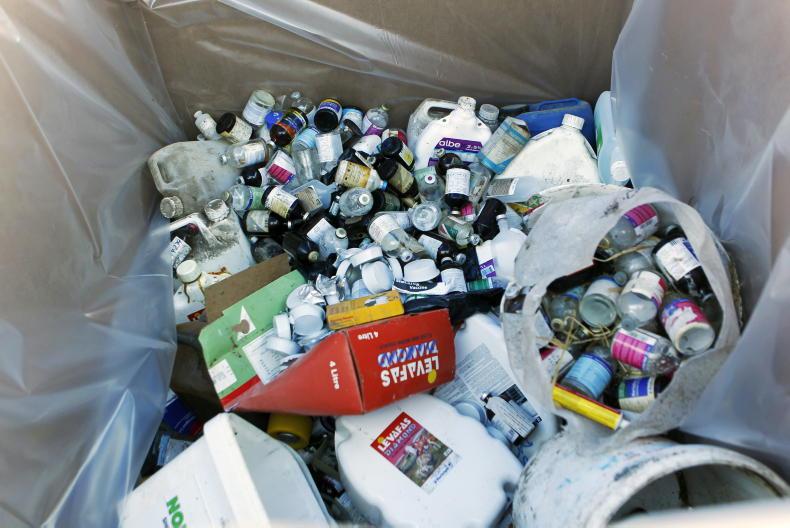
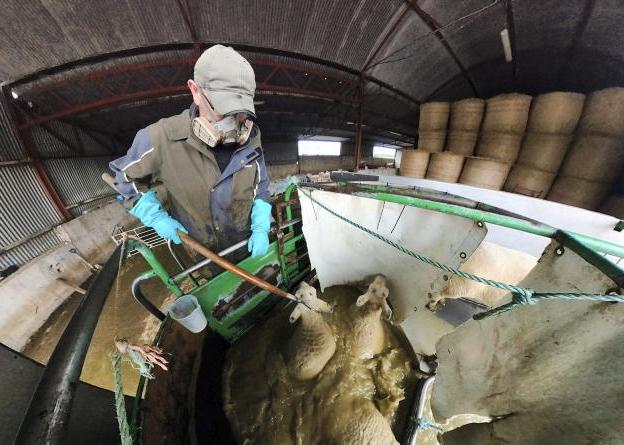
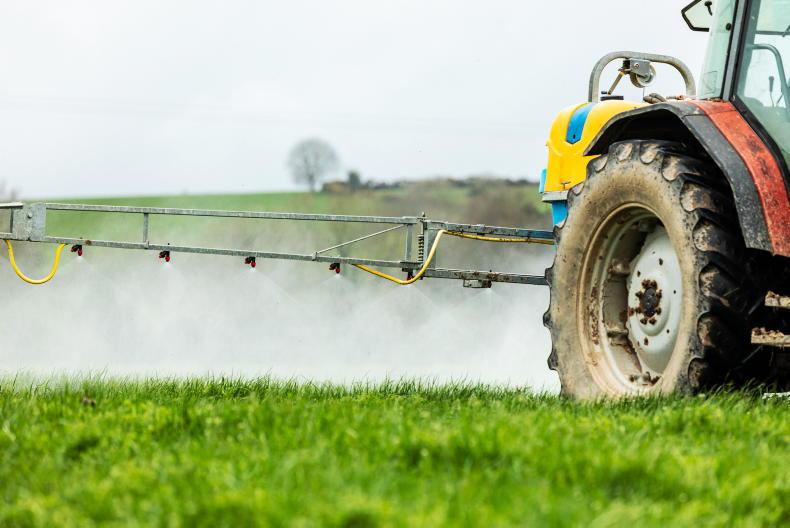
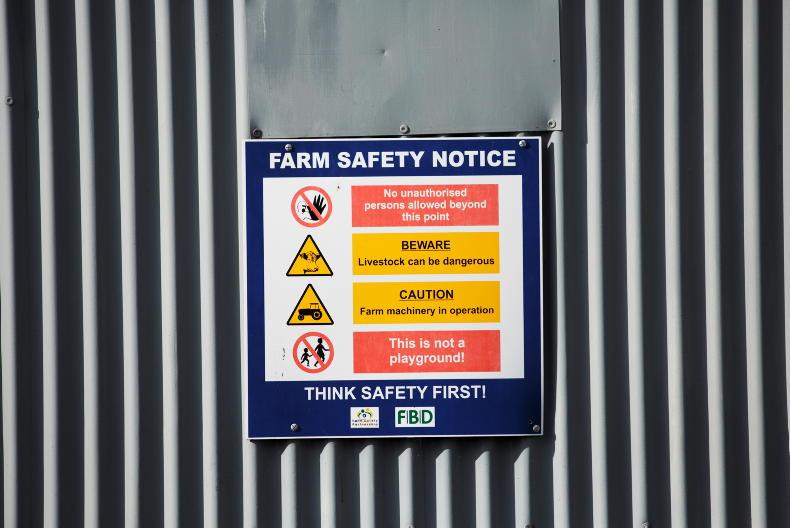
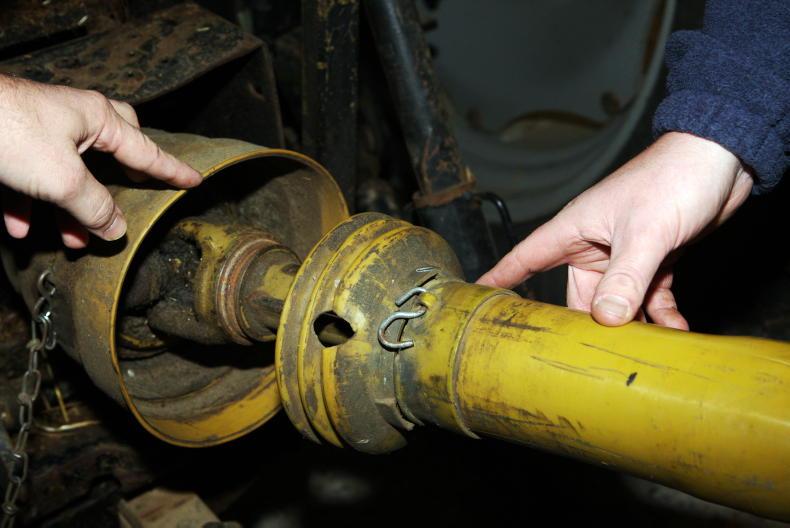
SHARING OPTIONS